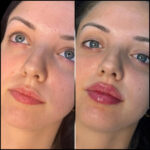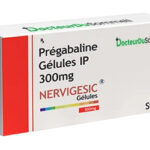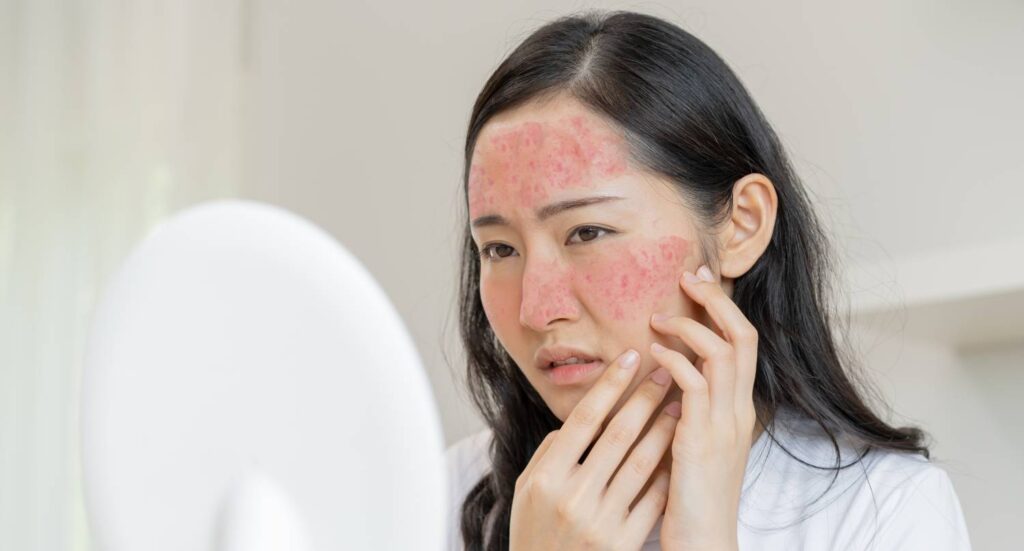Rosacea is a chronic skin condition characterized by facial redness, visible blood vessels, and acne-like breakouts that commonly affect the cheeks, nose, forehead, and chin. Over the past decade, growing evidence has suggested a possible link between gastrointestinal health and skin conditions, including rosacea. Rosacea treatment strategies have begun to shift in focus—not just managing visible symptoms on the skin but also addressing potential internal contributors such as gut health. In fact, the emerging connection between gut microbiome imbalance and inflammatory skin conditions has paved the way for more holistic approaches to Rosacea Treatment in Dubai and globally.
Understanding Rosacea: Beyond Skin Symptoms
Rosacea is often misunderstood as merely a cosmetic concern or mistaken for acne. However, it is an inflammatory disorder that may have multiple triggers, including sun exposure, spicy food, alcohol, stress, and more. Dermatologists now explore a broader picture when treating rosacea, looking beyond the surface to evaluate systemic factors like gut health, which may be playing a pivotal role in triggering and maintaining the inflammation.

What Is Gut Health and Why It Matters
Gut health refers to the optimal function and balance of the gastrointestinal system, particularly the microbiome—a complex community of trillions of bacteria, fungi, and other microorganisms living in the digestive tract. A well-balanced gut microbiome supports digestion, immune function, nutrient absorption, and inflammation regulation.
When the microbiome becomes imbalanced (a condition known as dysbiosis), it can result in increased gut permeability or “leaky gut,” leading to systemic inflammation. This inflammation may manifest in distant parts of the body—including the skin—potentially triggering or worsening conditions such as rosacea.
Scientific Evidence Linking Gut Health and Rosacea
Recent research has drawn compelling correlations between gut disorders and rosacea:
-
H. pylori Infection: Several studies have noted a higher prevalence of Helicobacter pylori (a common gut bacteria linked to ulcers) in rosacea patients. Some believe the bacteria may produce toxins or increase gastrin production, contributing to facial flushing.
-
Small Intestinal Bacterial Overgrowth (SIBO): Research published in Clinical Gastroenterology and Hepatology has found that SIBO is significantly more common in rosacea patients. Interestingly, when SIBO was treated, rosacea symptoms often improved dramatically.
-
Inflammatory Markers: Gut dysbiosis is known to elevate systemic inflammatory markers, such as interleukin-8 and tumor necrosis factor-alpha, which may influence the development and persistence of rosacea symptoms.
How Doctors Integrate Gut Health in Rosacea Treatment
Specialist dermatologists and functional medicine practitioners are increasingly taking an integrative approach to treating rosacea by investigating the state of the gut in tandem with skin assessment. Here’s how doctors evaluate and tailor treatment:
1. Comprehensive Diagnostic Testing
Doctors may begin by ordering:
-
Stool analysis to evaluate microbiome composition
-
Breath tests to detect SIBO
-
Blood tests to identify inflammation markers or food intolerances
2. Personalized Dietary Modifications
While diet is not a direct treatment, many specialists recommend working with nutritionists to identify and remove potential gut-irritating foods that can aggravate rosacea. This often includes:
-
Eliminating gluten, dairy, or sugar
-
Incorporating probiotics or fermented foods
-
Following an anti-inflammatory or low-histamine diet
3. Probiotic and Prebiotic Strategies
Dermatologists may coordinate care with gastroenterologists to introduce specific strains of probiotics that improve gut flora balance. This, in turn, may reduce inflammatory responses that trigger rosacea flares.
4. Targeted Treatment for SIBO or H. pylori
If underlying infections are diagnosed, doctors may suggest targeted treatments—under strict medical supervision—to restore gut balance. Successful eradication or management has, in many cases, coincided with significant improvement in skin clarity and reduced redness.
5. Collaboration Between Specialties
In Dubai, top dermatologists increasingly collaborate with gastrointestinal specialists, endocrinologists, and nutritionists to create holistic treatment plans. This multidimensional model not only enhances skin health but also contributes to general wellness.
Benefits of Addressing Gut Health in Rosacea Treatment
Taking gut health into account when treating rosacea offers several unique advantages:
-
Long-Term Symptom Relief: Treating root causes like dysbiosis may provide longer-lasting remission compared to surface-only treatments.
-
Reduced Flare-Ups: Balanced gut flora help regulate immune responses and reduce the triggers for flare-ups.
-
Improved Skin Tone and Texture: Patients often report smoother, clearer skin once systemic inflammation decreases.
-
Overall Wellness: Gut-focused treatment often leads to better digestion, energy levels, and immune strength, providing comprehensive health benefits beyond the skin.
Rosacea Treatment in Dubai: A Holistic Medical Perspective
With a modern and innovative medical infrastructure, Rosacea Treatment in Dubai has evolved into a more comprehensive, patient-centered experience. Dermatologists now work alongside gut health experts to provide multi-faceted solutions that go beyond traditional skincare. From advanced diagnostics to integrated wellness programs, Dubai clinics are at the forefront of bridging the gap between internal health and external appearance.
Frequently Asked Questions (FAQs)
1. Can poor gut health really cause rosacea?
While poor gut health may not directly cause rosacea, it can significantly influence its development and severity. Conditions such as SIBO, H. pylori infections, and gut inflammation have all been linked to rosacea flare-ups.
2. Do dermatologists treat the gut during rosacea therapy?
Yes, many modern dermatologists consider gut health as part of a broader rosacea management plan. They often collaborate with other specialists to evaluate and treat any underlying gastrointestinal issues.
3. Are probiotics effective in managing rosacea?
Certain probiotic strains can help rebalance gut flora, reduce inflammation, and improve skin conditions, including rosacea. However, they should be prescribed based on individual medical evaluations.
4. What tests might a doctor recommend for assessing gut health?
Doctors may suggest breath tests for SIBO, stool analysis for microbiome evaluation, or blood tests for food sensitivities and inflammation levels.
5. Is diet important in rosacea management?
Yes, diet plays a crucial role. Identifying and eliminating inflammatory or allergenic foods can reduce symptoms and improve both gut and skin health.
6. Can treating gut issues eliminate rosacea completely?
In some cases, addressing gut imbalances leads to substantial improvement or remission. However, rosacea is a multifactorial condition, and treatment outcomes may vary depending on individual triggers.
Conclusion: Treat the Gut, Transform the Skin
As the medical understanding of skin conditions deepens, it’s clear that rosacea is more than a surface-level issue. Emerging science strongly suggests that the path to healthier skin may begin in the gut. By identifying and addressing internal imbalances—particularly in the gastrointestinal system—doctors are revolutionizing how rosacea is managed.
Patients experiencing stubborn rosacea symptoms may benefit greatly from seeking dermatological care that includes gut health evaluation. Whether through diagnostics, dietary changes, or collaborative treatments, this integrated approach has the potential to offer longer-lasting and more meaningful relief. As such, for those seeking progressive and comprehensive Rosacea Treatment in Dubai, considering gut health may be the transformative solution they’ve been searching for.
- Is There a Connection Between Gut Health and Rosacea Treatment?
- When the microbiome becomes imbalanced (a condition known as dysbiosis), it can result in increased gut permeability or "leaky gut," leading to systemic inflammation. This inflammation may manifest in distant parts of the body—including the skin—potentially triggering or worsening conditions such as rosacea.
- Rosacea Treatment in Dubai
Related posts:
 Best Topical Finasteride & Minoxidil Spray for Hair Regrowth
Best Topical Finasteride & Minoxidil Spray for Hair Regrowth
 What Are the Key Considerations Before Getting Filler Injections?
What Are the Key Considerations Before Getting Filler Injections?
 Effective Weight Loss Clinic Killeen: Your Path to Lasting Results
Effective Weight Loss Clinic Killeen: Your Path to Lasting Results
 How to Prepare for Your Appointment with the Best Plastic Surgeon in dubai for Fillers
How to Prepare for Your Appointment with the Best Plastic Surgeon in dubai for Fillers
 Comment les analgésiques sur ordonnance se comparent-ils aux options en vente libre ?
Comment les analgésiques sur ordonnance se comparent-ils aux options en vente libre ?
 Prozenith: A Natural Weight Loss Supplement 70% OFF Discount
Prozenith: A Natural Weight Loss Supplement 70% OFF Discount
 Recovery and Aftercare Tips for Gynecomastia Patients in Dubai
Recovery and Aftercare Tips for Gynecomastia Patients in Dubai
 Top Reasons to Choose a Vitamin D3 Soft Gel for Everyday Health
Top Reasons to Choose a Vitamin D3 Soft Gel for Everyday Health







